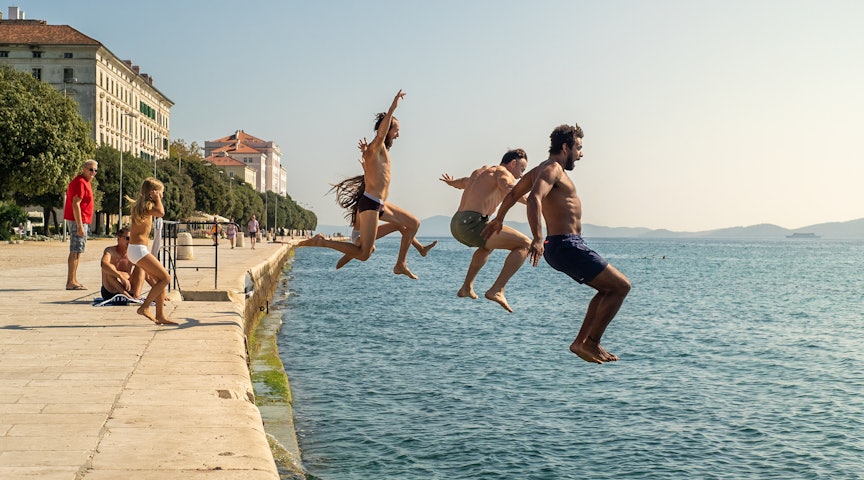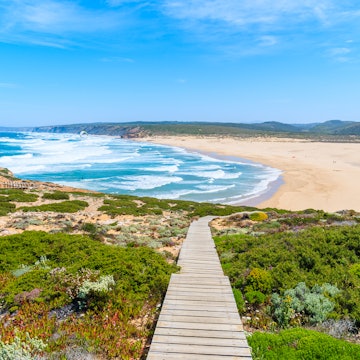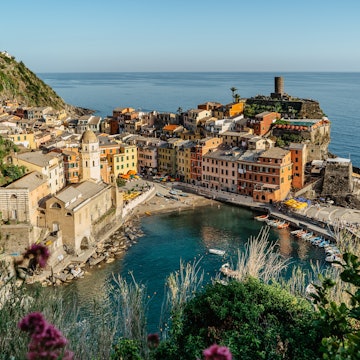
The 16 best places to visit in Croatia for castles, coastlines and cities

Aug 4, 2025 • 8 min read

Boats on the pier in Fosa Bay in Zadar in Croatia. Tanya Rozhnovskaya/Adobe Stock
With 2500 miles of coastline and close to 1200 islands, Croatia's sun-drenched credentials are impressive.
And that’s before you add its troves of Roman and Venetian-era architecture, UNESCO sites of both cultural and natural heritage, and gorgeous nature parks, mountain ranges, lakes and rivers. There’s such a diversity of landscapes and cultural attractions that a single visit can’t possibly cover them all.
Yet since you have to start somewhere, here’s our rundown of the very best places to visit in Croatia.
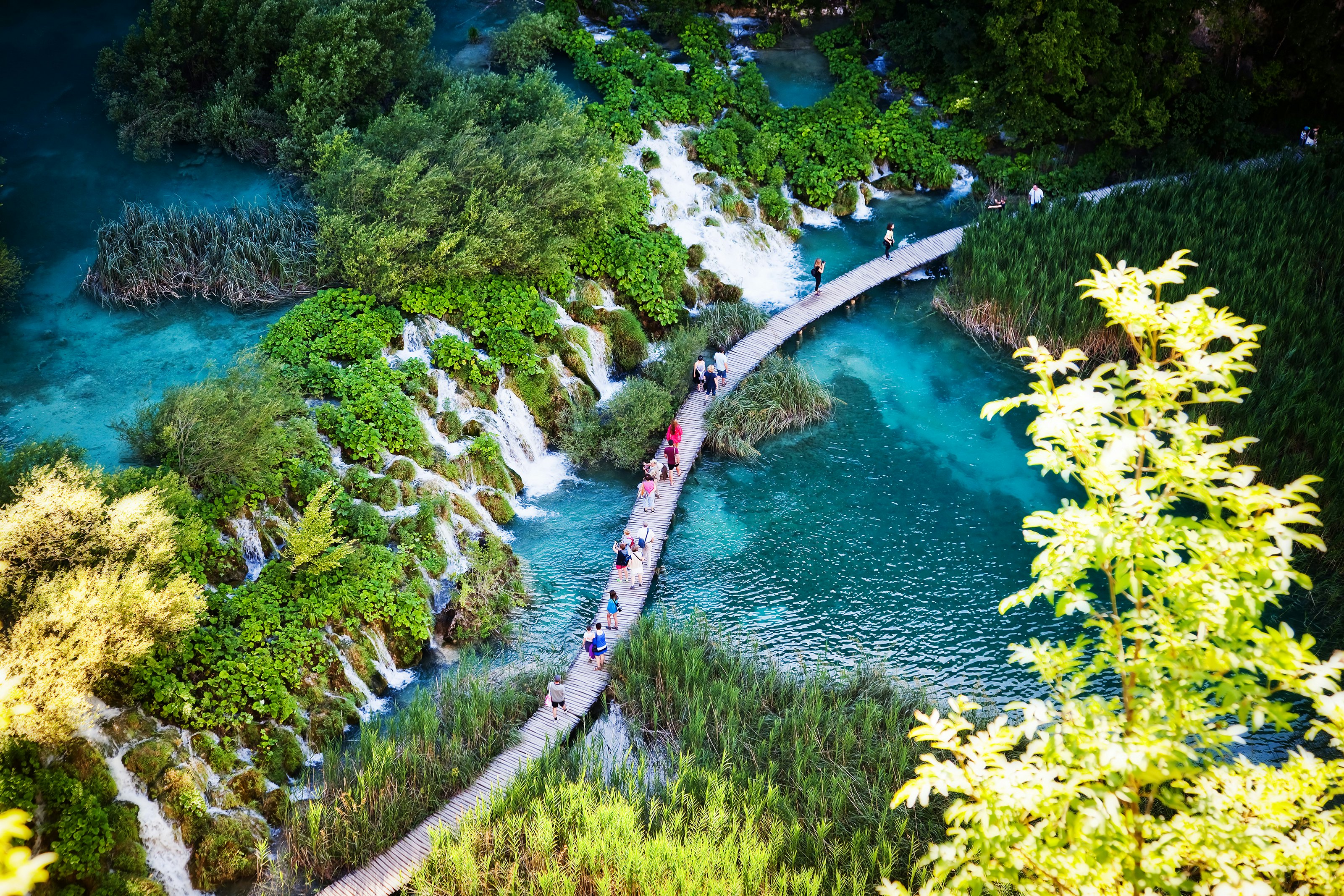
1. Plitvice Lakes National Park
Best for nature-lovers
A turquoise ribbon of lakes linked by gushing waterfalls in the forested heart of continental Croatia, UNESCO-listed Plitvice Lakes National Park is an awe-inspiring sight.
The park comprises 16 interconnected lakes, the 2.35km-long (1.5 miles) Kozjak being the largest, plus dozens of smaller ones – some just reed-fringed ponds. Travertine expanses covered with mossy plants divide the bodies of water, whose startling colors are a product of the underlying bedrock. Wooden boardwalks allow you to easily traverse this extraordinary watery world.
Planning tip: Entry tickets are limited to avoid overcrowding. Be sure to book online in advance.
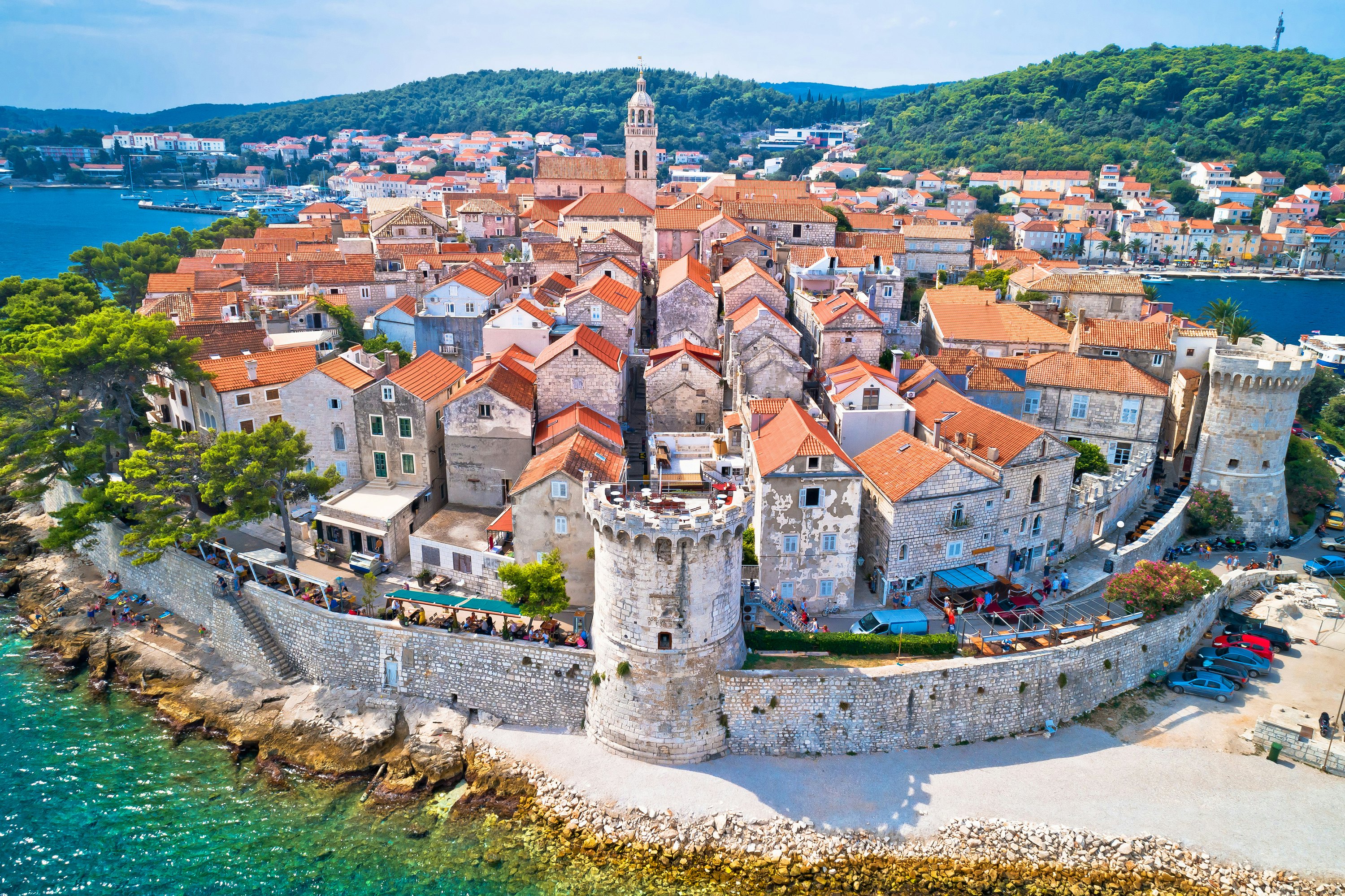
2. Korčula Town
The sweet little seaside town of Korčula has a set of imposing walls and towers, as well as an extraordinary cathedral, adorned with a downright kooky set of carvings. You can walk every one of the streets of its compact old town, laid out in a fascinating fishbone pattern, in less than an hour. This leaves plenty of time for an alfresco meal under the umbrella pines at one of the restaurants lining the sea-facing Petra Kanavelića promenade.
Planning tip: Korčula Town is an easy day trip from Dubrovnik by ferry.

3. Hvar Town
Best for celebrity-spotting
Summer is when yachts anchor at this tiny seaside party town, and sun-dazed revelers descend in droves to the beachside cocktail bars.
For a step back from the action and superb views over the town, head up to Fortica, the medieval castle looming on a hill above the town. To find a swimming spot, follow the waterfront promenade and stake out one of the tiny rocky bays, or hop on a taxi boat to the nearby Pakleni Islands.
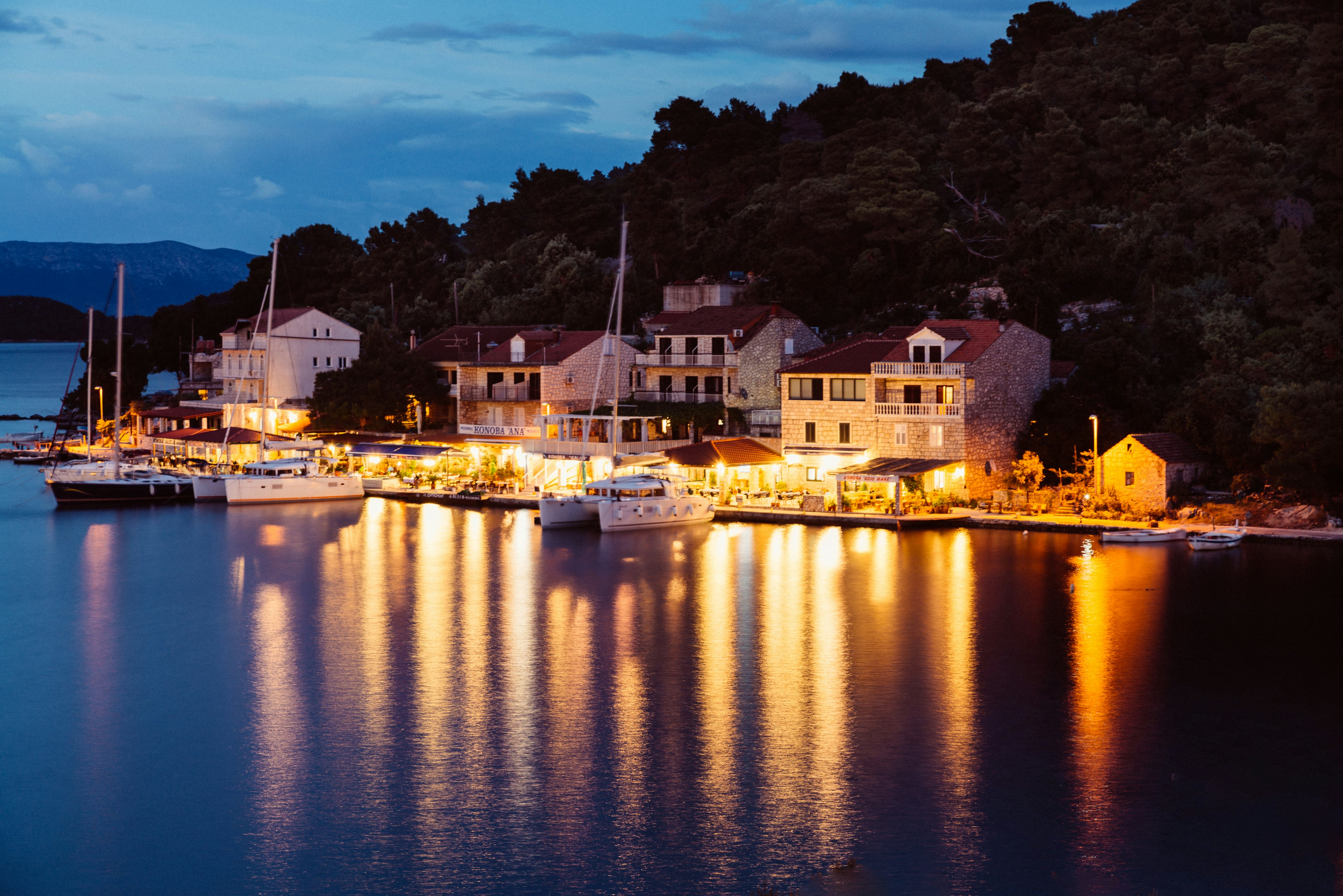
4. Mljet
Best for getting away from it all
Cloaked in dense pine forests, marvelous Mljet is an island idyll. Legend has it that Odysseus was marooned here for seven years, and it’s easy to appreciate why he took his time leaving. The entire western section of Mljet is a national park, where you’ll find two sublime cobalt-colored lakes, an island monastery and the sleepy, unbelievably pretty little port of Pomena. Don’t neglect eastern Mljet, home to some tranquil little bays and brilliant beaches.
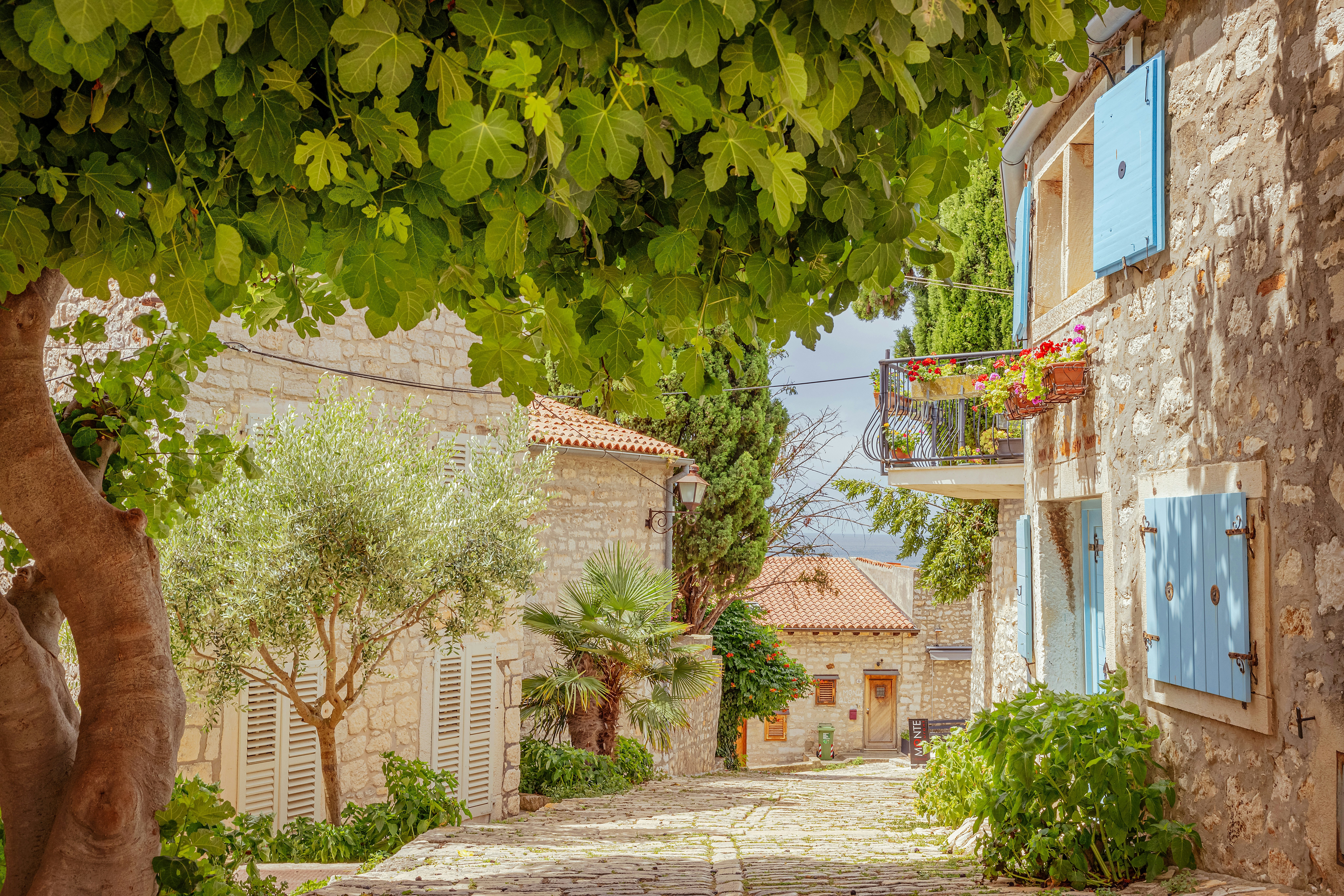
5. Istria
Best for charming hilltop towns
Istria delights with its undulating hills, charming hilltop towns and many seaside spots. A must-visit is lovely Rovinj, a town of pastel-hued facades and cobblestone lanes lined with art galleries, sitting on its own peninsula jutting into the Adriatic Sea.
Next, move inland to Motovun, a picturesque hilltop town rising from a forested valley. Park at its base and hop on the shuttle bus, or simply walk steadily uphill to its medieval walls for vistas of rolling hills. On Istria’s southernmost tip lies Cape Kamenjak, an undeveloped nature reserve fringed by a string of pebble bays and secluded rocky beaches.
Planning tip: Find accommodation in central Istria – from where it’s easy to get anywhere on the peninsula.
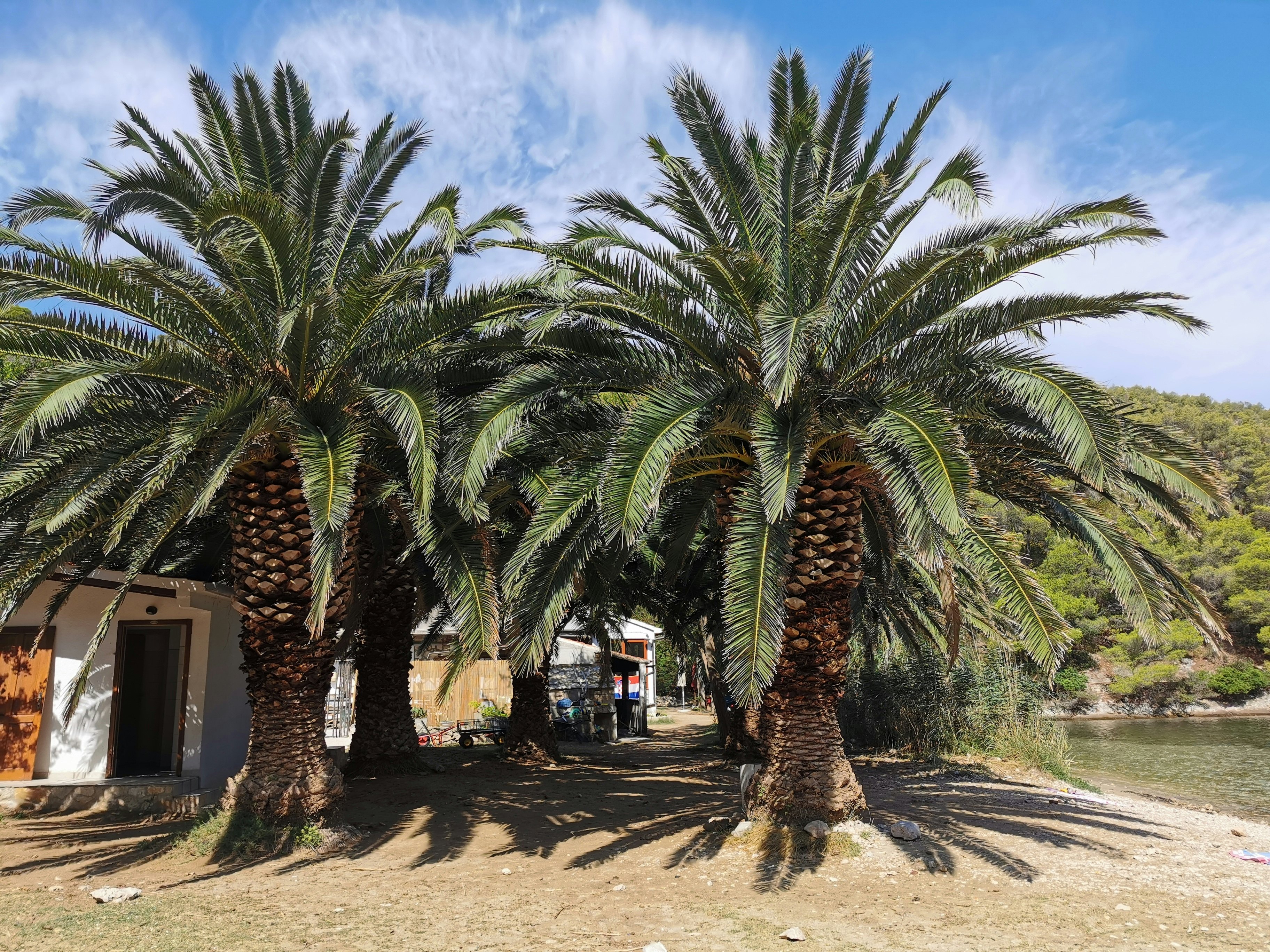

Meet your new travel partner
Get unlimited data while you travel with Holafly eSIM. Peace of mind and no hidden fees wherever you go.
6. Vis Island
Best for touring on a motorbike
One of Croatia’s more remote islands, Vis was best known as the site of a former Yugoslavian military base...before Mamma Mia! 2 put it on everyone’s list.
The port of Vis, neighboring Kut, plus Komiža at the western end are the island's major towns, made up of lovely stone townhouses and seaside promenades. The hidden bays and rocky coves of its southern coast are best explored by boat, especially postcard-perfect Stiniva Bay, otherwise reached via a steep, rocky path.
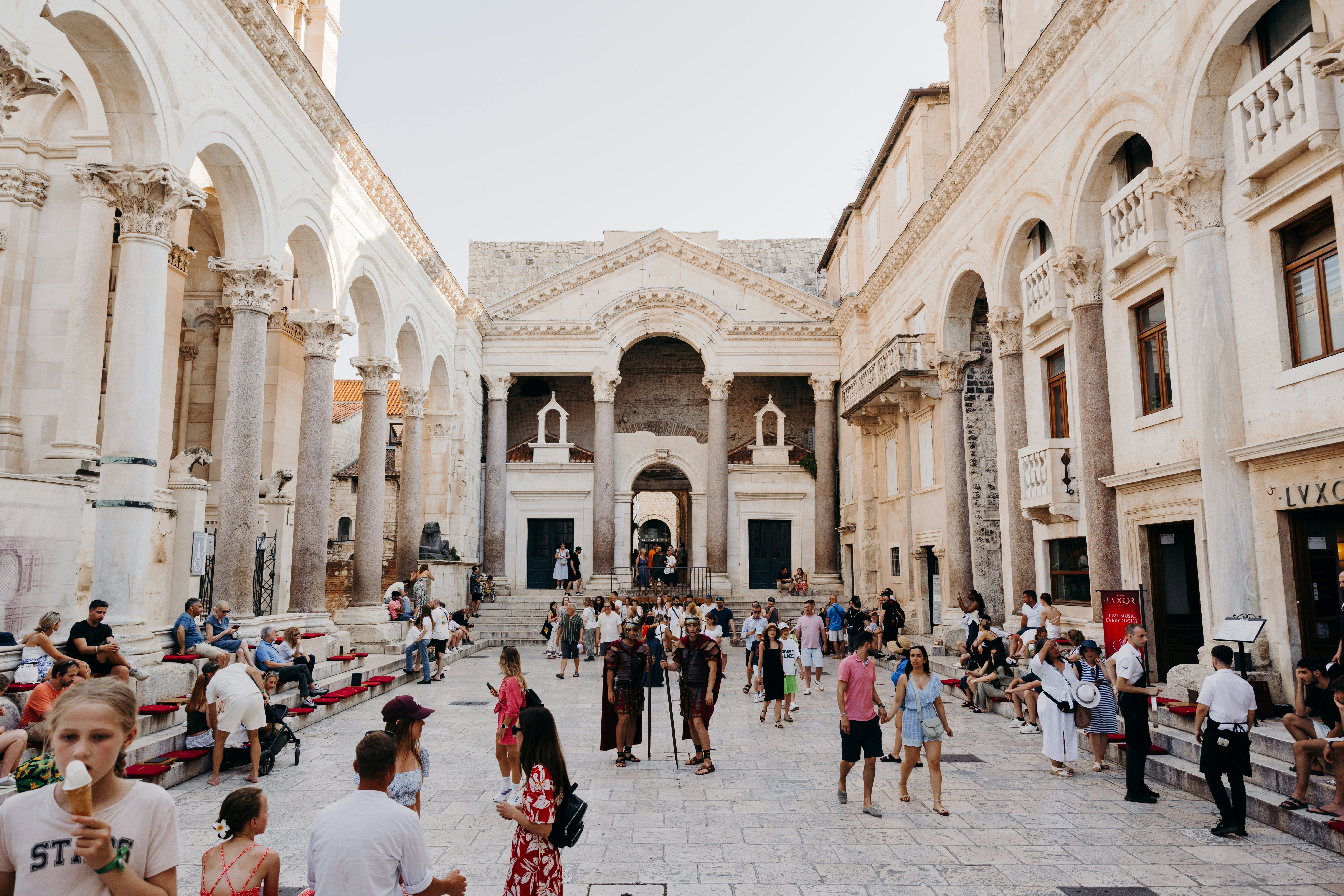
7. Split
Best for getting lost in the maze
Split's sea-facing Diocletian’s Palace is a surprising maze of streets and lanes, a mini 4th-century Roman city chock-full of cafes, shops and restaurants. Pause in the domed Vestibule to listen to professional Klapa singers demonstrating their traditional a cappella style, then hike along the forested paths of Marjan Hill to the lookout for a sweeping panorama of the city and seascapes.
Planning tip: Split’s harbor is the launching pad for the islands of Brač, Hvar, Vis, Šolta and Korčula.

8. Kopački Rit Nature Park
Best for birdwatching
Kopački Rit Nature Park sits on the floodplain of the Danube and Drava Rivers, and is one of the largest natural wetlands in Europe. Keen bird-watchers can join a boat trip to spot white-tailed eagles, black storks, purple herons, spoonbills and wild geese – just some of the park’s approximately 300 bird species. You can also follow the 2.4km-long (1.5 miles) boardwalk along an educational trail winding through the flooded forest floor and learn about local flora and fauna on the way.

9. Šibenik
Best under-the-radar charmer
Set on a bay connected to the Adriatic Sea, Šibenik is a charmer that somehow – undeservedly – falls off the radar. For starters, it has two UNESCO sites: its gorgeous landmark, the 15th-century St James’ Cathedral, notable for its frieze of 71 comical faces carved into its facade, and St Nicholas Fortress, a sea-bound fortification built during Venetian times that’s linked to the mainland via a walkway, granted the World Heritage honor in 2017.
This once carefully guarded city boasts three other fortresses; Barone is the most visit-worthy, thanks to its excellent visitor center and interactive exhibits.
Planning tip: Hop on the ferry for the short trip to tiny Zlarin, a car-free island.
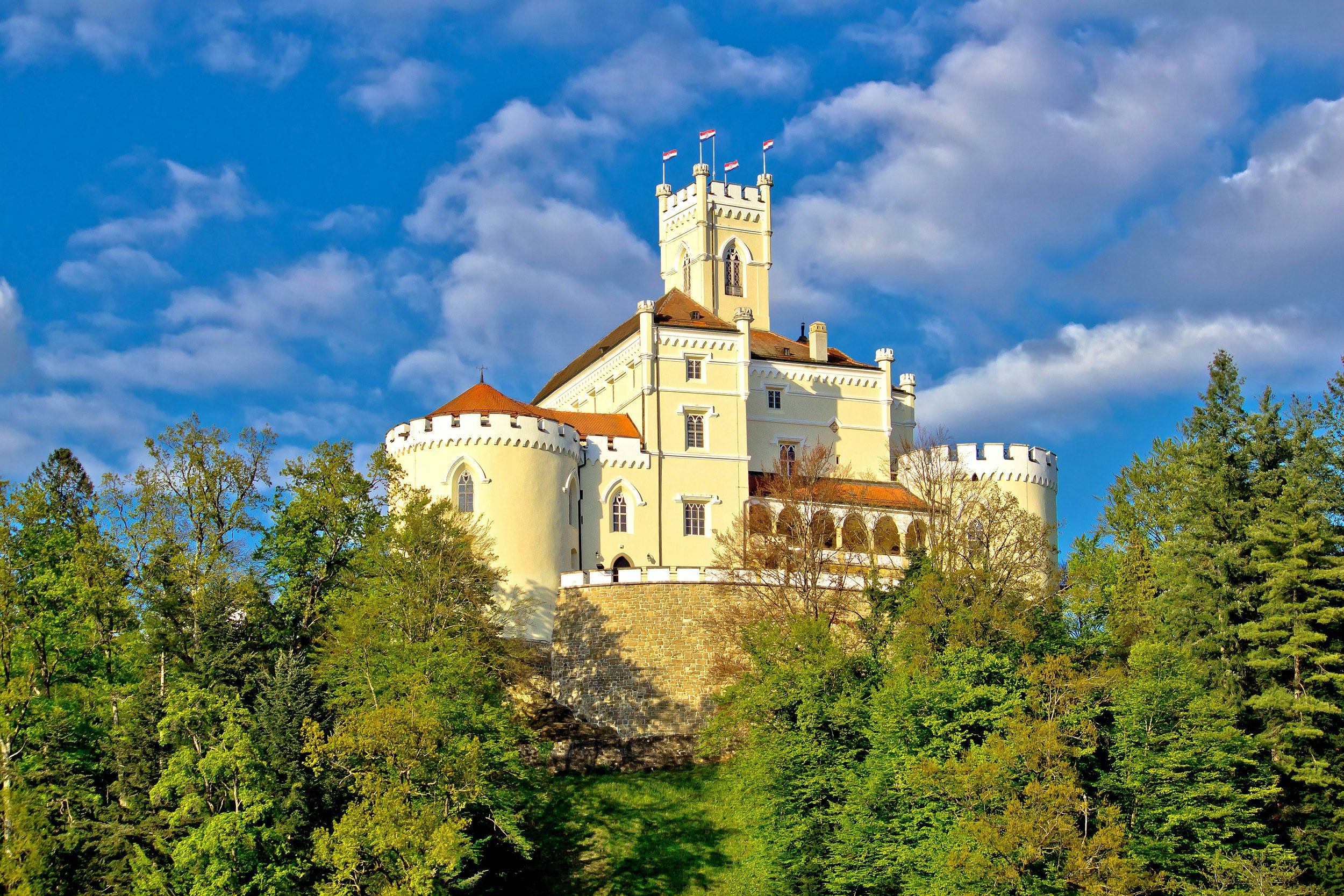
10. Zagorje
Best for medieval castles
In Zagorje, postcard-worthy medieval castles sit waiting for time travelers. Journey back to 1334 in Trakošćan Castle, whose neo-Gothic 19th-century exterior hides far older internal structures. Learn about the excesses of the Croatian aristocracy in its well-presented museum and wander 215 acres of castle grounds, landscaped into a romantic English-style park with exotic trees and an artificial lake.
Farther west, the hilltop castle of Veliki Tabor offers a trip to the 16th century, with its pentagonal towers and turrets, atmospheric interiors and bucolic landscapes that surround it.

11. Dubrovnik
Best for walking the walls
The extraordinary fortified city of Dubrovnik is Croatia’s most popular destination for good reason. Enclosed within its massive city walls are more than a dozen churches, medieval monasteries, elegant squares of limestone and centuries-old residential quarters. An absolute must-do is the circular walk atop its walls, where you can catch glimpses of hidden courtyards and gardens, as well as sweeping sea views.
Planning tip: Walk the walls first thing in the morning or an hour before closing to avoid the crowds and summer heat.
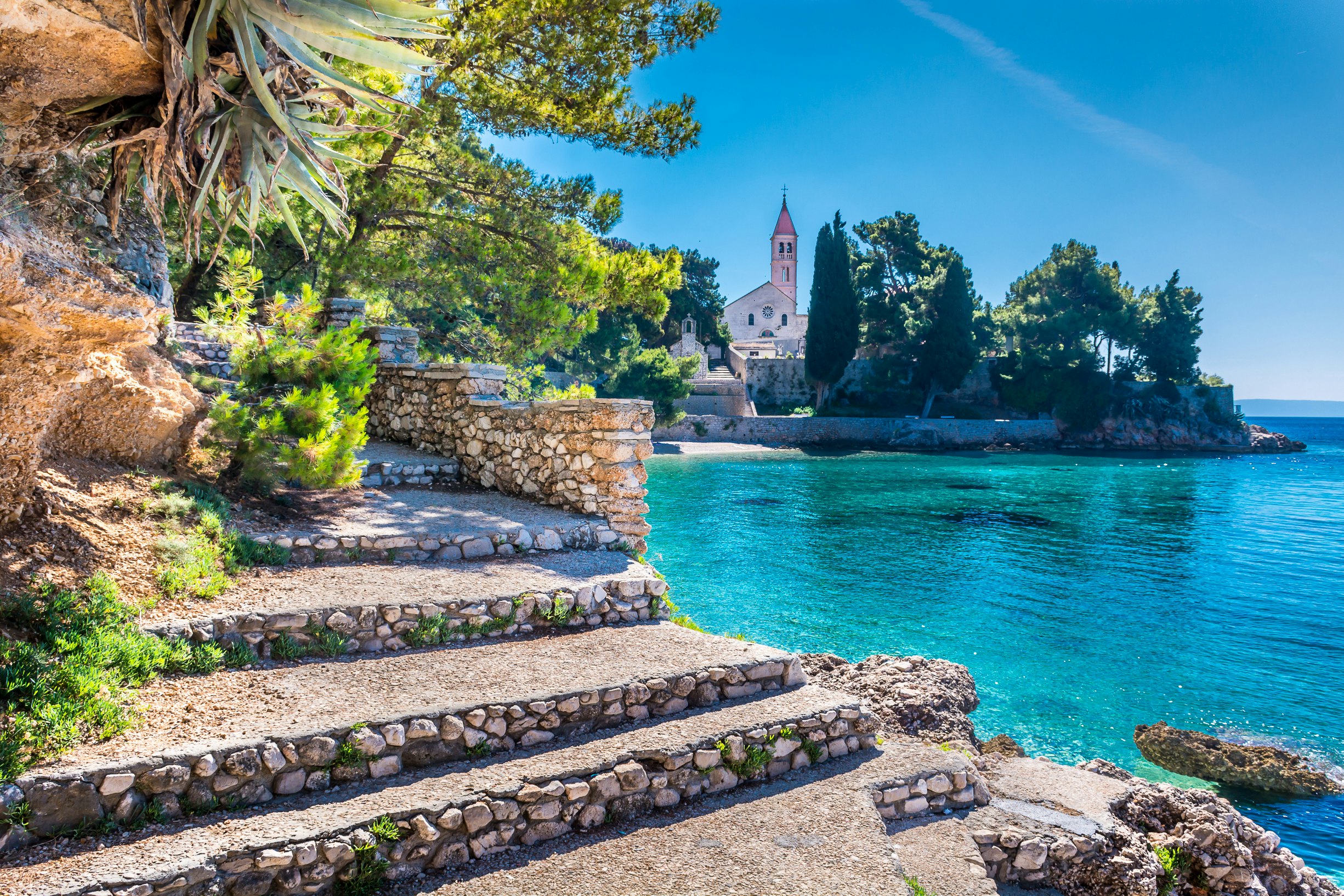
12. Brač Island
Best beach
Near the town of Bol on Brač’s southern coast lies the tail-shaped Zlatni Rat, Croatia’s most photographed beach. As astonishing as its shape are the two-toned blue-green waters lapping its strand of fine pebbles. Its eastern side gets a steady breeze, drawing swarms of wind- and kitesurfers.
Looming above is Vidova Gora, the highest peak in the Adriatic islands at 778m (2552 ft), with gorgeous vistas of nearby islands and the famous beach below. For a taste of island life, make a halt at the colorful fishing villages of Milna or Sutivan.
Planning tip: Stop in at the Olive Oil Museum in Škrip to learn about Brač’s history of production.
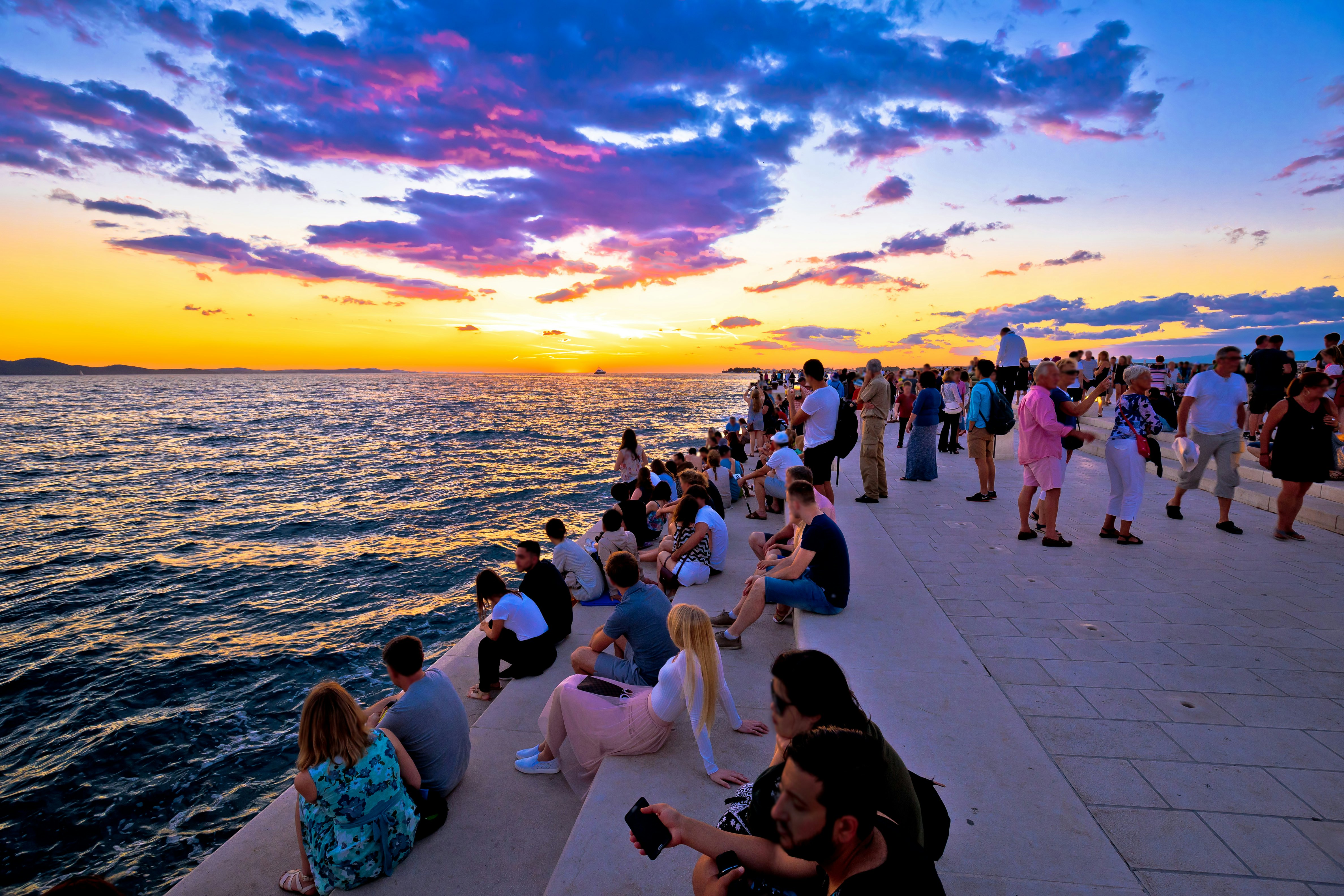
13. Zadar
Best for sunsets
Set on a peninsula, Zadar’s compact old town is crammed with Roman ruins, Byzantine churches and Romanesque cathedrals. Dating back to Venetian times, its defensive walls are recognized by UNESCO and have been transformed into a tree-lined promenade tracing the seafront.
At nightfall, the northwest corner of the old town is the stage for Zadar’s celebrated sunsets. The spectacle is set to the ethereal sounds of the Sea Organ, a quirky installation of 35 pipes hidden under stone steps that use the wind to create music. A few feet away is the Sun Salutation, a circular surface of solar panels that transforms into a colorful light show at night.
Planning tip: From Zadar, it's a one-hour drive south to Vransko Lake Nature Park, Croatia’s largest natural lake and home to more than 100 bird species.

14. Cres
Best off-the-beaten-track vibe
Wild, rugged and unspoiled, Cres has an off-the-beaten-track vibe. Cres Town is a busy port town with pastel-colored facades, while the quiet fishing village of Valun is bookended by immaculate pebble beaches. A hiking path from here heads upwards to Lubenice, a hamlet of stone houses perched on the edge of a 378m-high (1240ft) sea-facing cliff.
Lying at the island’s southern end is Osor, a charming village of stone cottages and rose gardens with a pleasing artistic bent, revealed in the stylized bronze sculptures of musicians decorating its squares.
Planning tip: At Osor, a short bridge connects Cres to the island of Lošinj.

15. Krka National Park
Best for waterfalls
The star of the show at this national park is the Krka River, rushing through canyons, broadening into lakes and splashing over numerous falls and cascades. Stroll along boardwalks past mighty waterfalls and marvel at the multitude of fish darting through the emerald waters.
You’ll also find ruins of a Roman military camp and amphitheater, historic watermills and two fascinating monasteries – one on an island and another built over ancient catacombs.

16. Zagreb
Best for local-culture
Zagreb is made for strolling. Wander along the tree-lined Strossmayer promenade, which winds along the city’s medieval defensive walls to the Upper Town for panoramic views over the red rooftops and church spires of the Lower Town. Afterward, stop off at the open-air Dolac Market, where farmers peddle their fresh produce under bright red umbrellas. Then do like the locals and head for a coffee on Flower Square (Cvjetni trg) to experience Zagreb's cafe culture.
Take your Croatia trip with Lonely Planet Journeys
Time to book that trip to Croatia
Lonely Planet Journeys takes you there with fully customizable trips to top destinations–all crafted by our local experts.
